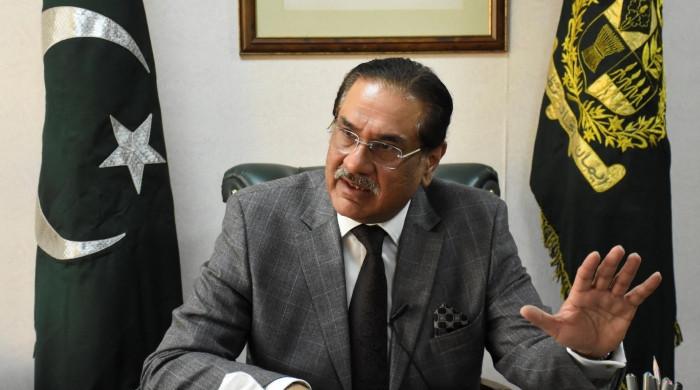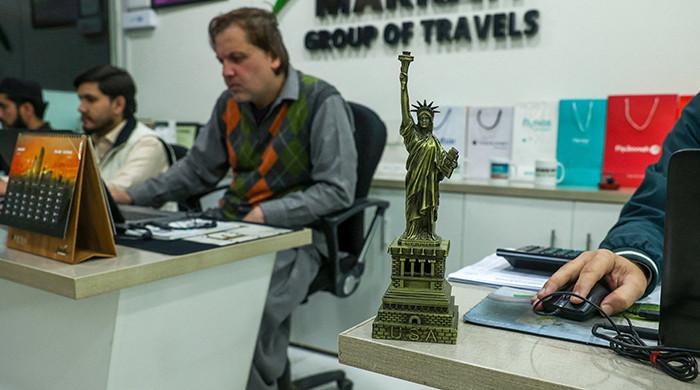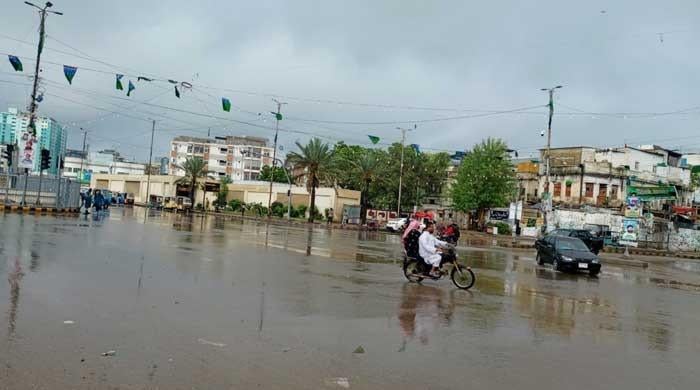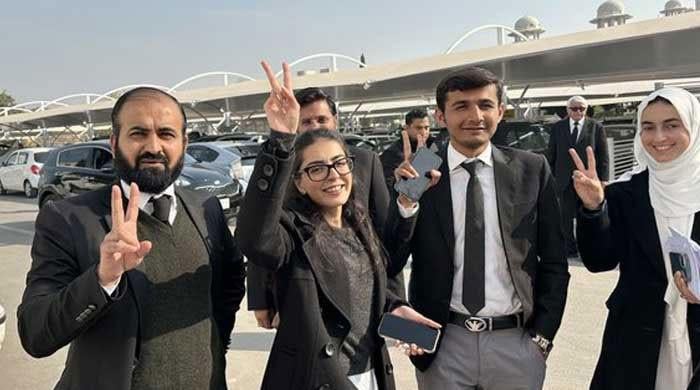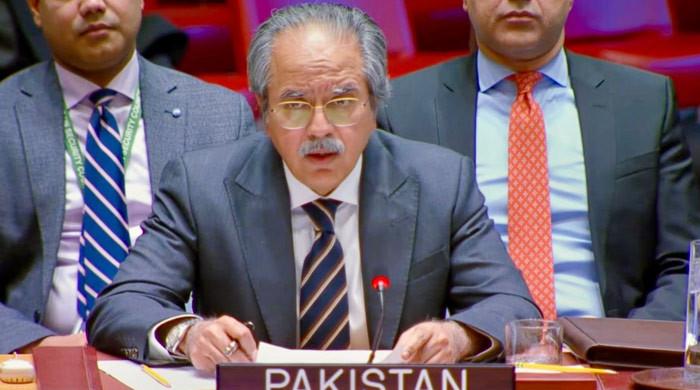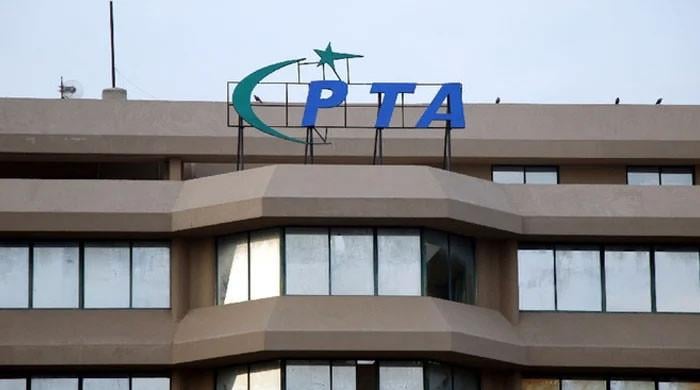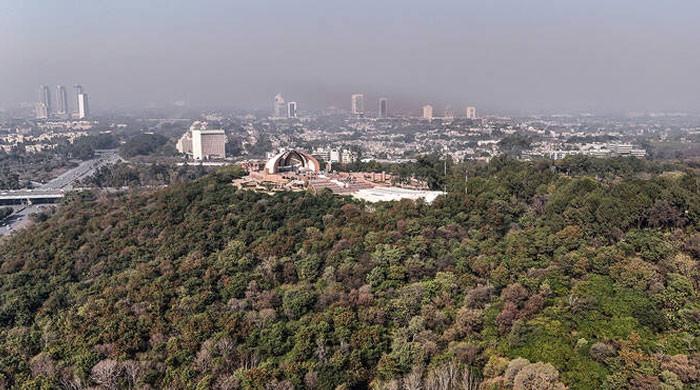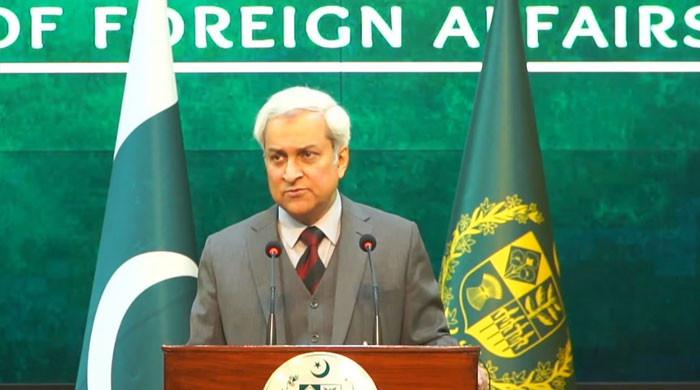'Should all work be done by SC?' Judge asks during Panamagate hearing
"You cannot bypass the law," says Supreme Court Justice Sardar Tariq Masood
June 09, 2023
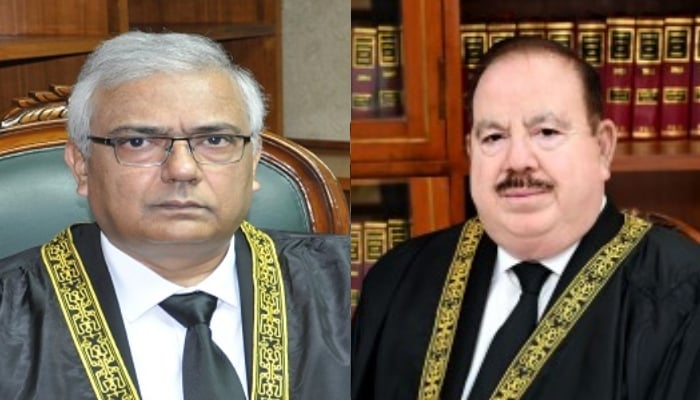
- "Why NAB, FIA not referred to in 7 years?" Justice Masood asks.
- "Allowed case against single family, was that your aim?" he asks.
- 2-member bench postpones hearing for one month.
ISLAMABAD: Supreme Court Justice Sardar Tariq Masood on Friday sought a response on forming a Joint Investigation Team (JIT) related to the 436 persons named in the Panama Papers and asked if the apex court was expected to should shut down all state institutions and do everything.
"You cannot bypass the law," Justice Masood said.
The judge's remarks came during a hearing of Jamat-e-Islami (JI) Amir Siraj ul-Haq's request to the apex court that it investigates all the 436 Pakistanis whose names are mentioned in the Panama Papers
A two-member bench comprising Justice Masood and Justice Amin-Ud-Din Khan heard the case filed in August 2016.
Why NAB, FIA not referred?
During the hearing, the top court judge said: "On November 3, 2016, five judges of the Supreme Court declared the Panama case admissible.
Tell us why the National Accountability Bureau (NAB), Federal Investigation Agency (FIA) and anti-corruption institutions were not referred to?"
The bench further took issue with the idea of establishing a JIT in the presence of investigative agencies and asked the petitioner how the Supreme Court could conduct investigations when they existed.
Another issue raised in the matter was how the court could decide without hearing the 436 people named in Panama.
The top court judge then asked Ishtiaq Raja, who was representing the JI leader, if, in the last seven years, the petition had applied to the investigation agencies to launch an inquiry against those named in the Panama Papers.
Case against single family
Justice Masood, during the hearing, inquired Siraj how and why the investigation against those embroiled in the Panama Papers controversy was in the interest of Pakistan.
"The Panama Papers are a matter of public money," he responded.
At the Justice Masood wondered: "Why did this thought not occur to you when — after 24 hearings — you asked to separate the case."
It must be remembered that on November 3, 2017, JI through an application reminded the apex court of its pending petition filed in August 2016.
However, the JI amir had then filed a petition asking that the case of then-prime minister Nawaz Sharif be separated since its grounds were too wide.
Harking back to that, Justice Masood came down hard on Siraj and asked: "You allowed the case against a single family, was that your aim?"
"Why did you remember public interest after 7 years?" he further quizzed.
The hearing was then postponed for one month.
The 2016 petition
The JI chief, in 2016, had asked the court to investigate all the 436 Pakistanis whose names are mentioned in the Panama Papers.
These included businessmen and politicians from Pakistan — including the members of then-premier Nawaz Sharif’s family who were accused of setting up offshore companies in the tax havens.
In its petition, Jamaat-e-Islami has prayed to the top court to direct the federation to initiate an inquiry into the Panama Leaks under Article 184(3) of the Constitution without mentioning the name of any politician or businessman, alleged to be involved in establishing offshore companies.
The JI ameer submitted that: "A large number of persons, many of them holders of public offices, were also allegedly involved in the commission of said offences and had not mentioned in the details of their assets about their investments through offshore companies, so all such holders of public offices were liable to be disqualified from their offices and also be punished accordingly."
Instead of making any politician or businessman respondent, the petitioner chose to make the Federation of Pakistan, Ministry of Law, Ministry of Finance, Cabinet Division, and National Accountability Bureau (NAB) through its chairman as respondents.
The petition added that the respondents were deliberately delaying and avoiding any proceedings of inquiry into the alleged corruption leaks "failing recovery of public money from abroad and hence the country is facing serious financial hardships”.
The petition further requested that the top court direct the respondents to initiate an inquiry/investigation followed by trial proceedings under the laws of Pakistan and resultantly a direction be issued to them to arrest the culprits and to recover and bring the public money back to Pakistan.




